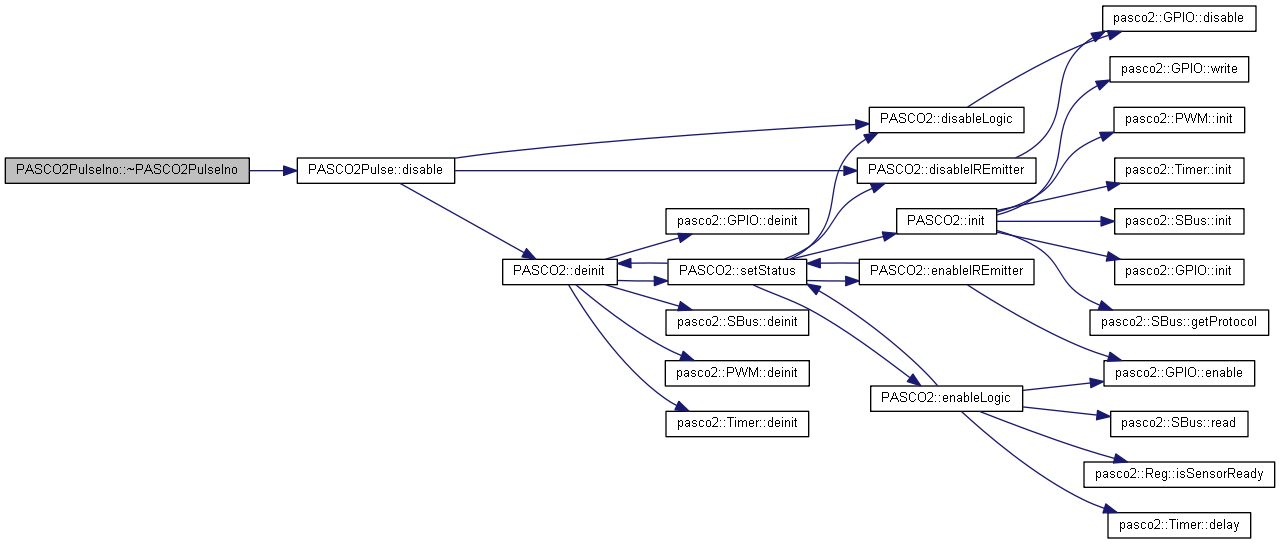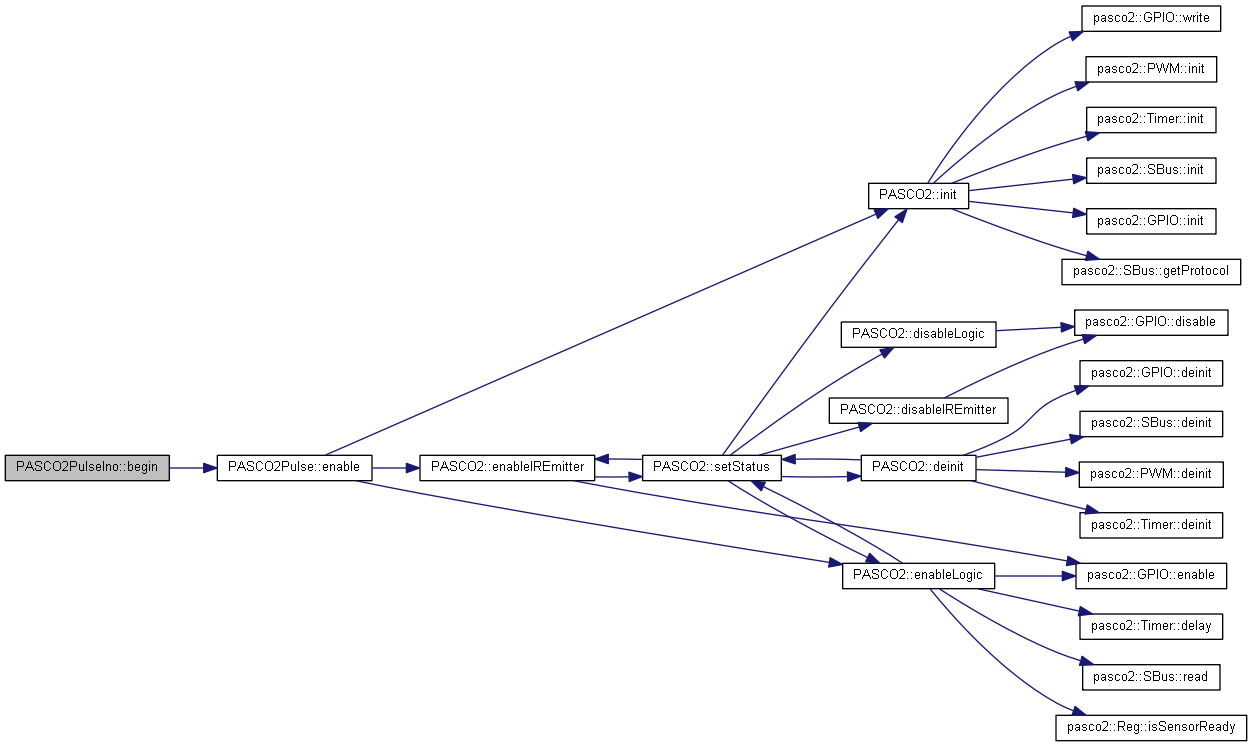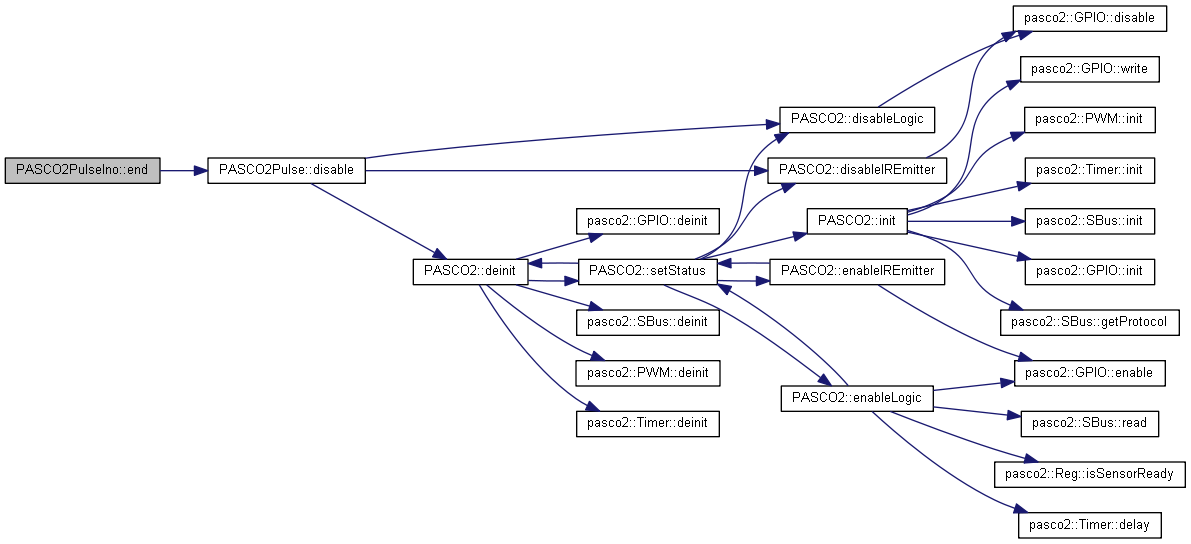#include <pas-co2-pulse-ino.hpp>
◆ PASCO2PulseIno()
PAS CO2 Pulse Arduino Constructor.
Mandatory arguments:
- The PWM pin needs to be provided
Optional arguments:
- All other pins instances.
Most of the GPIO will be fixed by hardware. In particular those enabling the sensor main power and the emitter power. They are part of the sensor library to provide potential absolute control by software. The hardware interface and its features, are also provided in the library. But it can be as well handled externally
- Parameters
-
| [in] | pwmPin | PWM pin. |
| [in] | intPin | Interrupt pin. Default is UnusedPin |
| [in] | power3V3Pin | Power 3V3 pin. Default is UnusedPin |
| [in] | power12VPin | Power 12V pin. Default is UnusedPin |
| [in] | pwmSelPin | PWM select pin. Default is UnusedPin |
- Precondition
- None
◆ ~PASCO2PulseIno()
| PASCO2PulseIno::~PASCO2PulseIno |
( |
| ) |
|
PAS CO2 Pulse Arduino Destructor.
It disables the sensor and deletes all the dynamically created PAL instances in the constructor
- Precondition
- None
◆ begin()
| Error_t PASCO2PulseIno::begin |
( |
| ) |
|
|
inline |
Begins the sensor.
- Note
- Optional call. The sensor initializes and enables the sensor directly in the rest of API calls.
- Returns
- PAS CO2 error code
- Return values
-
| OK | if success |
| INTF_ERROR | if interface error |
| IC_POWERON_ERROR | if power-on error |
◆ end()
| Error_t PASCO2PulseIno::end |
( |
| ) |
|
|
inline |
Ends the sensor.
- Note
- Optional call. The sensor initializes and enables the sensor directly in the rest of API calls.
- Returns
- PAS CO2 error code
- Return values
-
| OK | if success |
| INTF_ERROR | if interface error |
The documentation for this class was generated from the following files:
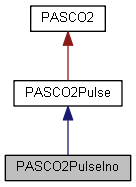
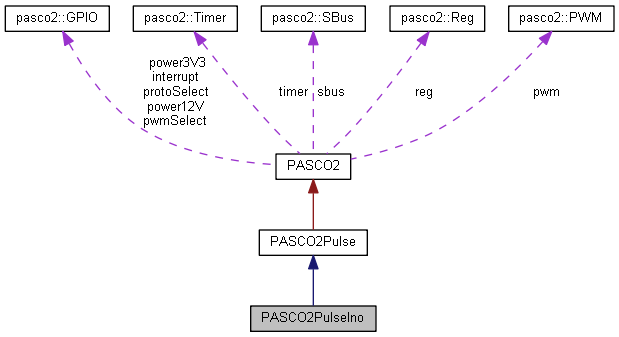
 Public Member Functions inherited from PASCO2Pulse
Public Member Functions inherited from PASCO2Pulse